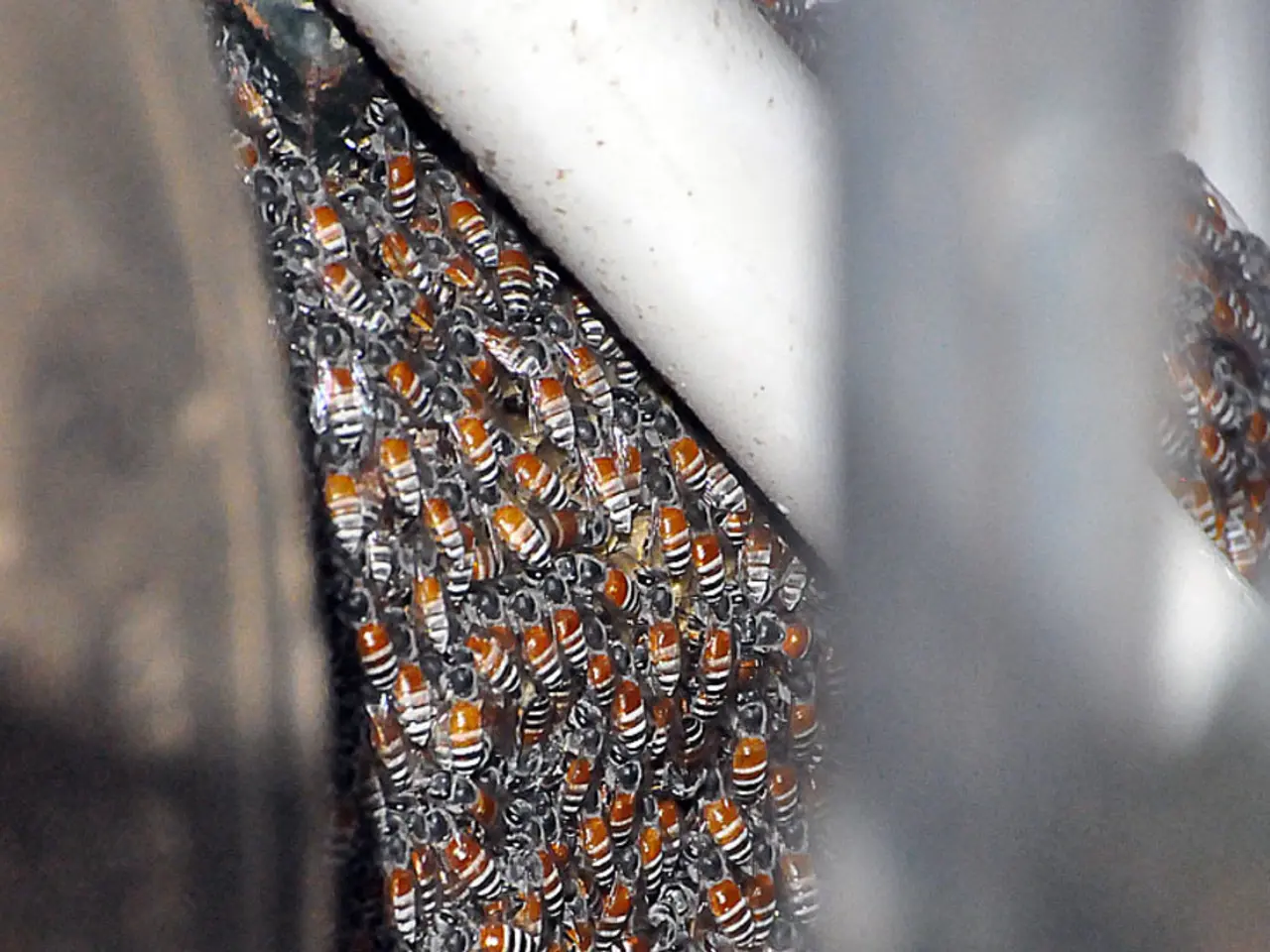Counterfeit Honey Is Under Attack by North Macedonia's Authorities
In a recent meeting with National Coordinator for Food Safety, Veterinary and Phytosanitary Policy, Ms. Verce Micevska, Mende Trajkovski, a representative of the Ministry of Agriculture, Forestry and Water Economy, discussed the state of beekeeping in North Macedonia and agreed to strengthen control of inspection services in retail markets.
The discussion focused on the rising concern over counterfeit honey, a problem that has been plaguing the North Macedonian market. Trajkovski expressed his concern about the issue and agreed that increased control of honey when imported into the country would be a valuable tool for combating this problem.
While specific details about the Union of Beekeepers' Associations of Macedonia and its current activities were not discussed, the association plays a crucial role in representing beekeepers in the country and advocating for the protection and promotion of Macedonian honey. The Union is, in fact, a member of the European Bee Association, which supports cooperation, knowledge exchange, and collective efforts in quality control.
To ensure the authenticity and quality of honey products, North Macedonia has implemented scientific methods like Nuclear Magnetic Resonance (NMR) profiling for origin detection. This method aids in combating adulteration and counterfeit products by ensuring traceability and authenticity.
The European Union (EU) is also enforcing stricter controls and labeling requirements for honey, which impacts North Macedonian honey exports and helps combat counterfeit products. These regulatory measures are part of broader EU policies designed to safeguard food authenticity.
In addition to these measures, initiatives for branding Mariovski honey and Pelisterski honey were introduced to promote local products and support producers. However, Trajkovski did not mention any specific initiatives for branding honey during the discussion.
In summary, North Macedonia is taking significant steps to ensure the authenticity and quality of its honey products, with the help of scientific methods like NMR profiling and stricter EU regulations. The Union of Beekeepers' Associations of Macedonia, a key stakeholder in promoting these quality standards, is likely involved in these efforts, although specific recent initiatives were not documented in the meeting.
For more detailed, up-to-date information about specific regulations, membership details, or the Union's current projects, direct contact with Macedonian beekeeping organizations or relevant government agencies would be recommended.
In the conversation, it was suggested that strengthening control of honey inspections, using scientific methods like Nuclear Magnetic Resonance (NMR) profiling, could aid in combating counterfeit honey issues. Furthermore, the health-and-wellness sector, specifically food-and-drink, was impacted by the European Union's stricter controls and labeling requirements for honey, which indirectly affect the lifestyle choices of consumers seeking authentic honey products.




